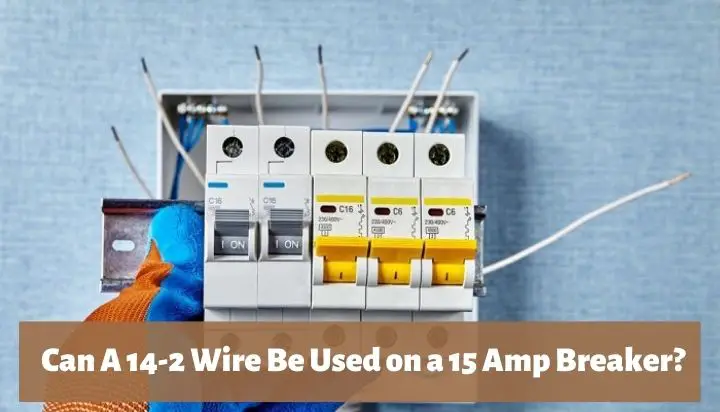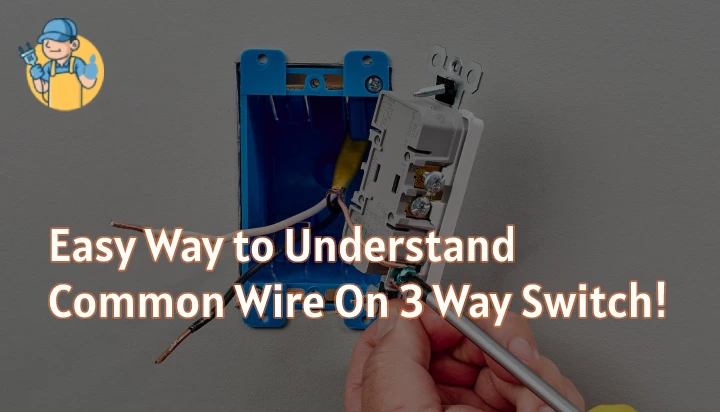A 14-2 wire means that it has two 14-gauge conductors: a hot and a neutral. The classification of this electrical cable consists of two numbers separated by a hyphen. But the question is, can I use 14-2 wire on a 15 Amp breaker?
It is possible to utilize 14/2 wires in circuits that have amperages of up to 15 amps. 14-2 wires should never be used in an 80-volt course. This should not be done with a current of 20 Amp as well.
In this article, I will explain the reasoning behind this as well as talk about the factors that play a role in the system.

The Appropriateness of Using 14-Gauge Wire for a 15 Amp Outlet
When wiring an outlet, it must always be ensured using a wire with a gauge of 14, even if the circuit only has 15 amps. It is not safe to use wire with a gauge of 14 for an outlet that is connected to a circuit that has 20 amps.
So, can I use 14-2 wire on a 15 Amp breaker? Yes. You can. But you also need to know how many things you can plug into one outlet. As overloading can overheat the wires.
Some of the aspects of using 14-gauge wire for an outlet are given below:
Aspects of using a 14-gauge wire:
- The 14-gauge wire may only be used if you’re wiring an outlet on a circuit that is 15 amps or less.
- Never use wire with a gauge of 14 when installing an outlet on a circuit with more than 15 amps.
- Find out how much amperage the circuit your outlet is on by checking the breaker box in your home.
Find the breaker box to figure out how many amps are running through the circuit. It should be opened, and the circuit breaker that regulates the electricity to the outlet should be located within.
Which Circuits Are Best Suited for 14-Gauge Wire?
14/2 wire may be used to wire outlets and lights on 15-amp circuits. Typically, it is used to power low-amperage lighting. 14-gauge wire is typically used to wire light fixtures on 15-amp circuits.
For outlets on 15-amp circuits, a 14-gauge wire is optimal. If your outlet is connected to a 20-amp circuit, a 14-gauge wire will not suffice. You must upgrade to a 12-gauge wire or larger.
For outlets, 14-gauge wire may be used. However, 12-gauge wire is often used for this purpose. 12-gauge wire is the smallest size for outlets on a 20-amp circuit. This current exceeds the capacity of a 14-gauge wire. Therefore, it is only optimal for low-amperage outlets.
How does starting current affect the decision?
However, selecting 12- or 14-gauge wire for outlets is not always simple. Some appliances have a higher starting current than their operating current. Multiple outlets may cause a substantial voltage drop in a circuit.
This occurs when many outlets are in use simultaneously. These issues may be avoided if the breaker and all outlets are rated for 15 amps. You may accomplish it by using a 12-gauge wire to wire the outlet circuit.
This is the finest alternative. Ensure that the breaker that controls the circuit and all outlets are rated for 15 volts.
Can a 12-Gauge Wire Replace a 14-2 Wire?
Yes. 12-gauge wire is thicker than 14-gauge wire, so it can sustain larger amperages without overheating and igniting. 12-gauge wire also permits longer wire lines to transmit electricity with a reduced chance of voltage loss.
Although 12-gauge wire is designed for heavy-duty, 14-gauge wire may also be used for a variety of household wiring applications. The difference between 12-gauge wire and 14-gauge wire is described below:
The comparison between the 12-gauge wire and 14-gauge wire:
- The wire of gauge 12 is thicker than the wire of gauge 14.
- 12-gauge wire can carry more current without overheating than 14-gauge wire.
- Using 12-gauge wire instead of 14-gauge will result in reduced voltage loss over extended wire lines.
- 12 and 14-gauge cables for home wiring include the same three wires: white, black, and ground.
Is 14 Gauge Wire Safe for a 20 Amp Circuit?
Never connect a 20-amp circuit using a 14-gauge wire. A 14-gauge wire is not designed to carry so much current. If you force a 14-gauge wire to carry 20 amps of current, the wire will overheat.
In the best-case scenario, the circuit breaker will trip to avoid potentially hazardous overheating, but this will cut power to the circuit. It is very risky to use a 14-gauge wire on a circuit that is rated for 20 amps.
If you put wire with a gauge of 14 on a circuit rated for 20 amps, the wires may overheat, which might result in the breaker tripping or a fire in the electrical system.
What is the worst-case scenario?
A 14-gauge wire connected to a 20-amp circuit has the potential to overheat to the point where it starts an electrical fire. This is the worst-case scenario. The wire should be upgraded to a gauge of at least 12 for all 20-amp circuits.
Instead, you should look at the differences between using 12-gauge and 14-gauge wire for outlets. If you want to avoid potentially fatal overheating and fire, it is necessary to use at least 12/2 wire on circuits that are rated for 20 amps.
Can 14-2 Wires be Used for Lighting?
Wires with a gauge of 14-2 are often seen in lighting circuits and installations. But a 15-amp outlet has to be used. Otherwise, it may lead the wire to overheat.
Check to see that the lights are not using more than fifteen amps of electricity. Light fixtures are typically wired in using 14-2 wiring in the majority of residences.
The majority of house builders connect outlets to circuits rated for 12 amps using wire with a gauge of 12. They adopt this strategy because some pieces of electrical equipment need 20-amps.
The 15 Amp circuit is not sufficient to power bigger pieces of machinery. Please be sure you utilize outlets and cables with a rating of 20 amps if you want to upgrade and need more power. Choose the wire gauge likewise.
Summary
So, can I use 14-2 wire on a 15 Amp breaker? This article should provide sufficient information on that matter. By now, you should have gained an understanding of the relation between wire gauge and breaker size.
However, there may be other hidden factors that come into play. Such as the distance or length of the wire, or the wattage. Hence it is always preferred to consult with a professional before proceeding.

![What Is A Conductor Of Electricity? [Explained]](https://wiringsolver.com/wp-content/uploads/2021/12/What-Is-A-Conductor-Of-Electricity.jpeg)


![Parallel VS Series Circuit [Difference and Comparison]](https://wiringsolver.com/wp-content/uploads/2022/03/Differences-Between-Parallel-and-Series-Circuits.jpeg)

![Double Light Switch Not Working!! [Solved]](https://wiringsolver.com/wp-content/uploads/2022/08/Fix-Double-Light-Switch-Not-Working.jpeg)